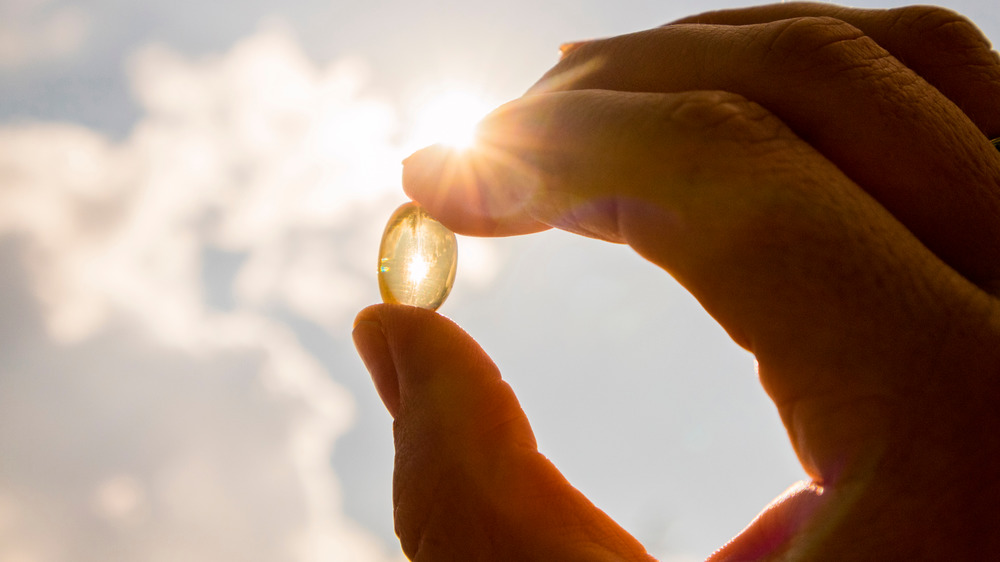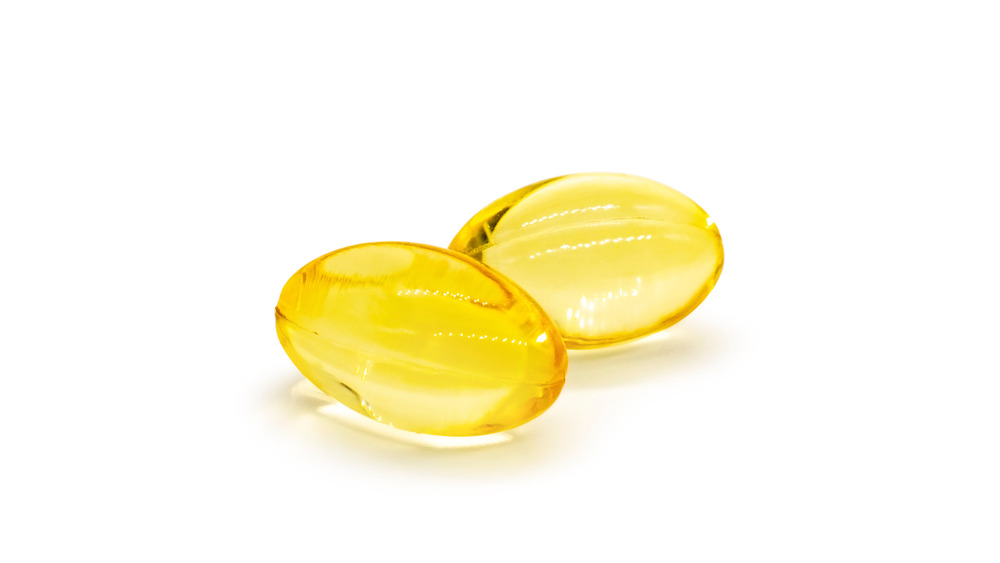The Surprising Way Vitamin D Supplements May Affect Your Sleep
Vitamin D is also called the sunlight vitamin because your skin produces it when exposed to the sun. About 50 percent of people across the world have vitamin D insufficiency and about 1 billion people have vitamin D deficiency (via a 2012 review). Normal vitamin D levels are between 30 and 40 nanograms per milliliter. A vitamin D insufficiency is about 20 nanograms per milliliter and a vitamin D deficiency is anything less than that, according to the World Medical Association. You can get a simple blood test from your doctor to check your levels.
Vitamin D is essential for your health. People with low vitamin D concentration are at risk for heart disease, hypertension, obesity, type two diabetes, depression, cognitive impairment, Parkinson's, falls and fractures, autoimmune diseases, influenza, bacterial vaginosis, pelvic floor disorders, and age-related macular degeneration. Vitamin D can even help lower your risk of getting COVID-19.
How could vitamin D supplementation affect your quality of sleep, though?
When to take your vitamin D for the best absorption
Three different studies found that low vitamin D levels on their own caused sleep disturbances (via a 2017 study in Nutrients), poor sleep quality (via a 2017 study in Annals of Occupational and Environmental Medicine), and a shorter duration of sleep (via a 2015 study in Sleep). It might be best to take your vitamin D supplement in the morning with breakfast, and you might find that getting adequate amounts of vitamin D can improve your sleep quality.
You should take a vitamin D supplement with 600 to 800 IUs per day, according to Harvard Health Publishing, but you can take up to 4,000 IUs. Do not take more than that unless your doctor recommends it. Since exposure to the sun without sunblock can increase your risk of melanoma, a deadly skin cancer, it's best to get your vitamin D from your food and supplements. You can get it from tuna, mackerel, salmon, egg yolks, and beef liver. You can also get it from fortified foods like orange juice, milk, and cereal (via Yale Medicine).
Since vitamin D is a fat-soluble vitamin, it doesn't dissolve in water and is best absorbed when taken with a meal. A small 2010 study found that people who took vitamin D with their largest meal of the day boosted their blood levels of the vitamin by about 50 percent after two to three months. A 2017 study in older adults found that when taking vitamin D with a fat-heavy meal increased their blood levels of the vitamin by 32 percent after 12 hours. Eggs, avocados, seeds, nuts, and full-fat dairy foods can help boost your vitamin D absorption.


